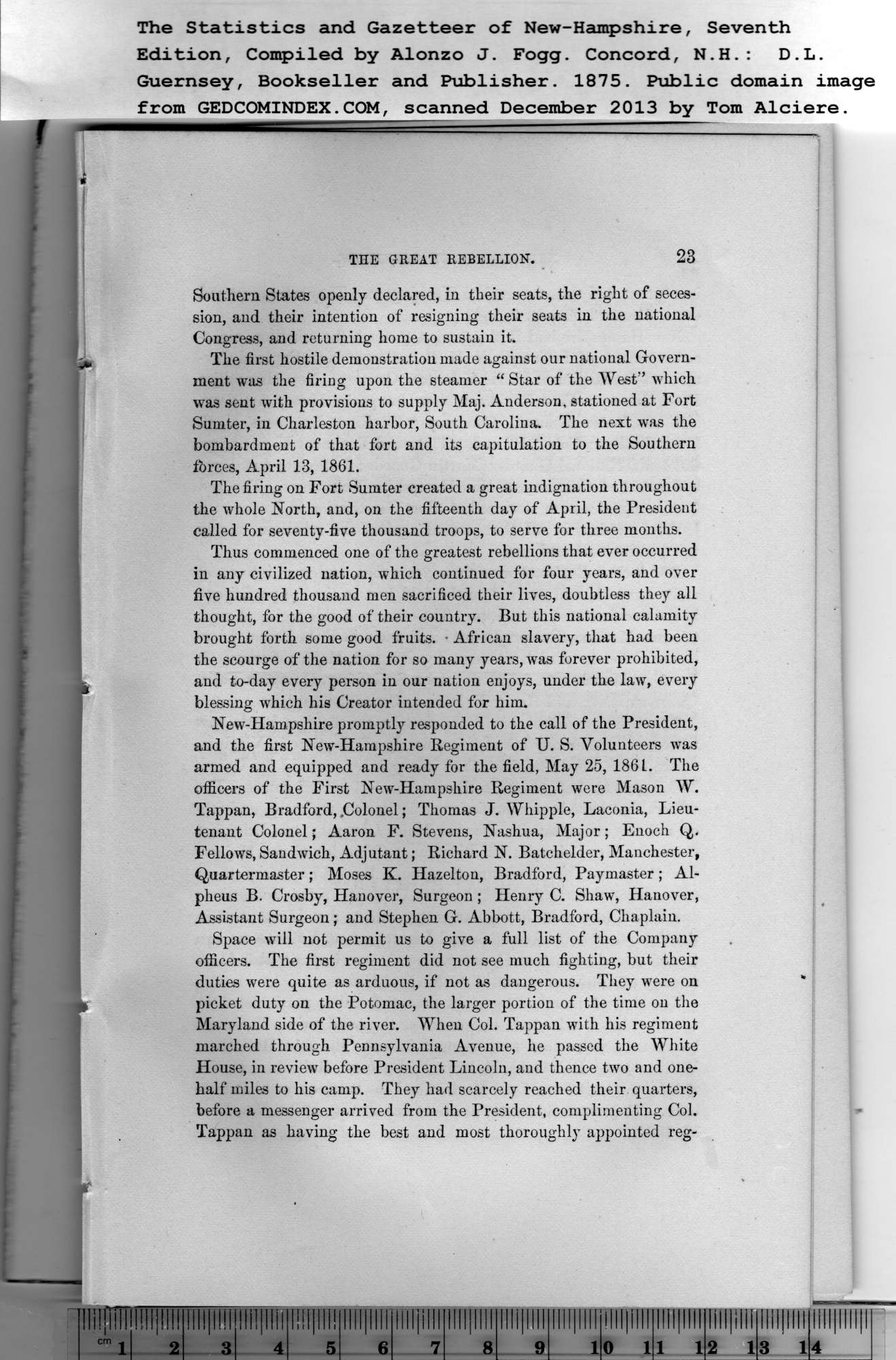|
THE GREAT REBELLION. 23
Southern States openly declared, in their seats, the right of seces-
sion, and their intention of resigning their seats in the national
Congress, and returning home to sustain it.
The first hostile demonstration made against our national Govern-
ment was the firing upon the steamer “Star of the West’’ which
was sent with provisions to supply Maj. Anderson, stationed at Fort
Sumter, in Charleston harbor, South Carolina. The next was the
bombardment of that fort and its capitulation to the Southern
ibrces, April 13, 1861.
The firing on Fort Sumter created a great indignation throughout
the whole North, and, on the fifteenth day of April, the President
called for seventy-five thousand troops, to serve for three months.
Thus commenced one of the greatest rebellions that ever occurred
in any civilized nation, which continued for four years, and over
five hundred thousand men sacrificed their lives, doubtless they all
thought, for the good of their country. But this national calamity
brought forth some good fruits. • African slavery, that had been
the scourge of the nation for so many years, was forever prohibited,
and to-day every person in our nation enjoys, under the law, every
blessing which his Creator intended for him.
New-Hampshire promptly responded to the call of the President,
and the first New-Hampshire Regiment of U. S. Volunteers was
armed and equipped and ready for the field, May 25, 1861. The
officers of the First New-Hampshire Regimeut were Mason W.
Tappan, Bradford, JColonel; Thomas J. Whipple, Laconia, Lieu-
tenant Colonel; Aaron F. Stevens, Nashua, Major; Enoch Q.
Fellows, Sandwich, Adjutant; Richard N. Batchelder, Manchester,
Quartermaster; Moses K. Hazelton, Bradford, Paymaster; Al-
pheus B. Crosby, Hanover, Surgeon ; Henry C. Shaw, Hanover,
Assistant Surgeon; and Stephen G. Abbott, Bradford, Chaplain.
Space will not permit us to give a full list of the Company
officers. The first regiment did not see much fighting, but their
duties were quite as arduous, if not as dangerous. They were on
picket duty on the Potomac, the larger portion of the time on the
Maryland side of the river. When Col. Tappan with his regiment
marched through Pennsylvania Avenue, he passed the White
House, in review before President Lincoln, aud thence two and one-
half miles to his camp. They had scarcely reached their quarters,
before a messenger arrived from the President, complimenting Col.
Tappan as having the best and most thoroughly appointed reg-
PREVIOUS PAGE ... NEXT PAGE
This page was written in HTML using a program written in Python 3.2
|
